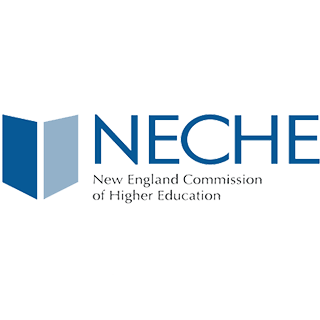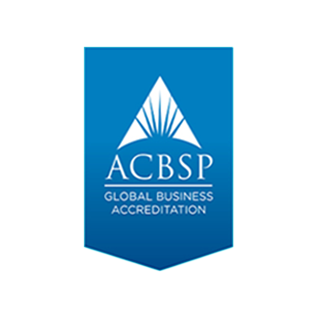For Jazzmen Shipp, Earning a Degree Changed Everything
Business | 2min Read

Undergrad Cost per Credit $342
Grad Cost per Credit $659
Total Credits 18
Organizations in every industry need accounting professionals to help them maintain the financial health of their business. As an accounting professional, you can record and interpret financial records, ensure compliance, evaluate fiscal standing, offer guidance and prepare tax documents – for individuals, companies and government entities.
If you have a knack for numbers and enjoy solving business challenges, consider an undergraduate or graduate accounting certificate at Southern New Hampshire University.

SNHU offers 2 online accounting certificates, each geared toward different points in your career.
If you are starting college for the first time or are working in accounting – with or without a bachelor's degree – and want to up-skill, the undergraduate accounting certificate program is for you. Plus, it can stack seamlessly into SNHU's associate and bachelor's degree programs in accounting if you choose to continue your education.
If you have a business bachelor's degree and want an advanced credential, have a non-business bachelor's degree and want to work in accounting, or need courses for the 150-credit requirement needed for educational eligibility in order to sit for the CPA licensure exam in most jurisdictions, the graduate accounting certificate is for you. It can also get you started on your way toward earning a master's degree in accounting.
These courses are designed to provide you with the basic skills for entry-level positions or to up-skill within your organization. As part of the curriculum, you can earn Wiley Excel for Accounting certificates alongside your coursework and refine your accounting skills using Excel.
You'll take 6 courses (18 credits) in general accounting, including taxation, to cover the basics of accountancy as a profession. A variety of written communication and creative thinking exercises are included along with best practices of professional accountancy.
The graduate certificate offers well-rounded coursework for accounting professionals who already have a bachelor's degree or those who need courses that can count toward the 150-credit-hour requirement to sit for the CPA licensure exam (in most jurisdictions ). This program was revised in advance of release of the 2024 Uniform CPA Examination, with its content aligned to that which candidates will see on the exam.
Throughout the 6-course (18-credit) program your coursework will focus on accounting principles and practices while reinforcing applicable transferable skills, such as written communication and creative thinking.
Minimum Specifications:
Additional Information:
The content in SNHU's Undergraduate and Graduate Certificates in Accounting was intentionally aligned to the 2024 Uniform Certified Public Accounting (CPA) Examination®. Learners interested in the exam and licensure may also need to pursue other Accounting educational in order to meet the 150 credit hours required for exam eligibility in most jurisdictions. Completion of the Undergraduate or Graduate Certificate in Accounting alone will not satisfy complete educational eligibility to sit for the CPA licensure exam or to become a licensed CPA in most jurisdictions.
Licensing requirements to sit for the CPA exam vary from jurisdiction to jurisdiction. Students are encouraged to review their jurisdiction-specific requirements. Jurisdiction educational requirements can be found on the website of the National Association of State Boards of Accountancy (NASBA), while jurisdiction CPA licensing requirements can be found through the Accounting Licensing Library, powered by the NASBA.
For more information on which SNHU programs satisfy educational eligibility by jurisdiction, please visit our licensure and certification disclosure page.
Our no-commitment application can help you decide if SNHU is the right college for you and your career goals. Apply up until 2 days before the term starts!
Upcoming undergraduate term starts: May 4, 2026 | June 29, 2026
Upcoming graduate term starts: July 6, 2026 | September 21, 2026
Attending college online at SNHU can be a life-changing experience. In fact, 93.4% of online students would recommend SNHU according to a 2025 survey with 8,718 respondents.
Our instructors are at the heart of SNHU's mission of student success. With a passionate dedication to our students and their learning, our faculty is with you every step of the way. Courses in our accounting certificate programs are taught by instructors with professional credentials and experience in the field of accounting.

Mona Stephens teaches financial and managerial accounting at SNHU. She has over 25 years of accounting experience and has been teaching accounting for almost 20 years. She is a Certified Public Accountant, Certified Internal Auditor and a member of the Government Finance Officers Association, the American Association of Accountants and the Institute of Management Accountants.
Position
Faculty Lead
Joined SNHU
2011
Education

Kristin Regis began her teaching career as an English instructor at Edogawa University near Tokyo, Japan. Her passion for teaching and finance prompted her to start teaching finance courses part time at SNHU (both face-to-face and online) before transitioning into a full-time finance faculty lead role. Prior to working full time for SNHU, she held corporate and municipal leadership positions for over 10 years. Regis is a member of the Financial Planning Association
Position
Senior Associate Dean
Education
Read more about other online faculty at SNHU.
You’ll take your courses within SNHU’s Brightspace platform. This is where you’ll find your:

At Southern New Hampshire University, you'll have access to a powerful network of more than 400,000 students, alumni and staff that can help support you long after graduation. Our instructors offer relevant, real-world expertise to help you understand and navigate the field. Plus, with our growing, nationwide alumni network, you'll have the potential to tap into a number of internship and career opportunities.
Recently, SNHU has been nationally recognized for leading the way toward more innovative, affordable and achievable education:
Founded in 1932, Southern New Hampshire University is a private, nonprofit institution with over 250,000 graduates across the country. SNHU is accredited by the regional accreditor New England Commission of Higher Education (NECHE), which advocates for institutional improvement and public assurance of quality.
No application fee. No test scores. And no college essay. Just a simple form with basic information. It’s another way SNHU helps you reach your goals sooner.
It's easy, fast and free.
Whether you're applying for an undergraduate or graduate degree, you’ll fill out a form to verify your previous education experience. As part of our admissions process, we'll help you request transcripts from your previous school(s) to see if you can transfer any credits into your SNHU program! (Also for free!)
After reviewing your official evaluation, you can decide if SNHU is right for you! If you choose to enroll, just pick your start date and get ready for classes to begin.
Talk to an admission counselor: 888.327.SNHU | enroll@snhu.edu
SNHU is accredited by the regional accreditor the New England Commission of Higher Education (NECHE). The university also carries specialized accreditations for some programs.
These certificates are accredited by the Accreditation Council for Business Schools and Programs (ACBSP). Student achievement data can be found on the ACBSP accreditation page.


As a nonprofit university, SNHU offers some of the lowest online tuition rates in the country. And when you work with our Financial Services team, we'll explore ways to help you save even more on your education – and customize a payment plan that works for you.
The undergraduate certificate program is not eligible for Federal Student Aid. However, the graduate certificate is eligible for federal financial aid. Students seeking alternatives to federal financial aid can explore tuition assistance, grants and scholarships, as well as private loans. To learn more about private loans, visit our Funding Your Education with Student Loans page.
Tuition rates are subject to change and are reviewed annually.
*Note: Students receiving this rate are not eligible for additional discounts.
Additional costs: Course materials vary by course.
Tuition rates are subject to change and are reviewed annually.
*Note: Students receiving this rate are not eligible for additional discounts.
Additional costs: Course materials vary by course.
Transfer credits toward your degree program at SNHU. If you’ve taken one course or many, we’ll evaluate them for you.
Fill out the FAFSA to see if you’re eligible for grants or work-study. (You could also be offered loans, though you’ll have to pay those back later.)
Earn credits in leadership, technology and more – while taking advantage of online undergraduate and graduate tuition discounts for active-duty service members and spouses.
Getting free money for college – from SNHU or an outside organization – could help you save hundreds or even thousands of dollars.
Bring in credits from popular options like CLEP, Sophia Learning, Google and other common credit for prior learning (CPL) experiences.
Learn how you can save money with tuition reimbursement from your employer.
Take advantage of an online tuition discount through your organization’s partnership with SNHU. Check with your employer to see if your organization partners with us and if you’re eligible for additional tuition savings and partner education benefits.
An undergraduate accounting certificate provides a solid foundation in accounting principles and practices that can prepare you for entry-level accounting positions or advancement in your current role in accounting, auditing or finance.
A graduate accounting certificate can open doors into general or niche accounting roles and prepare you to up-skill toward a more advanced accounting career working for organizations or clients who have diverse accounting needs.
Entry-level job roles include:
Oversee a company’s financial inputs and outputs, maintain books, process payroll, produce reports and make general ledger entries.
Perform general accounting duties including reconciling bank statements, recording revenue and managing accounts receivable.
Serve as an administrator of accounts payable and receivable. You may also track cash flow and ensure on-time payments
Advanced job roles include:
Prepare or examine financial records, discover opportunity and risk, and share solutions that can help businesses and individuals.
Help improve efficiency and advise managers on making organizations more profitable through reduced costs and increased revenue.
Collect taxes, perform tax returns, conduct audits, identify taxes owed and collect overdue tax payments.
The 2023 median annual pay nationally for bookkeeping, accounting and auditing clerks, according to the U.S. Bureau of Labor Statistics (BLS).1 Statistic not based on wage data for SNHU graduates.
The 2023 median annual pay nationally for accountants and auditors, according to the BLS.1 Statistic not based on wage data for SNHU graduates.
Understanding the numbers
When reviewing job growth and salary information, it’s important to remember that actual numbers can vary due to many different factors—like years of experience in the role, industry of employment, geographic location, worker skill and economic conditions. Cited projections are based on Bureau of Labor Statistics data, not on SNHU graduate outcomes, and do not guarantee actual salary or job growth.

The instructors added a lot of value to my education. They were consistently adding real-world examples to the weekly lessons, as well as challenging students on the discussion board to think beyond the basics of the task at hand.
Andrew Cyr '21G
The application process at Southern New Hampshire University is easy – and there's no application fee.
To start an undergraduate certificate program at Southern New Hampshire University, you only need to fill out an attestation form that says where you earned your high school diploma or GED. For a graduate certificate, you must show that you've finished your bachelor's degree, which can be in any subject.
You can talk with your admission counselor to make sure that the accounting certificate program you're interested in is right for you and that it can help you fill your skills gap.
Any accounting certificate program you enroll in should also include good student support services. Academic advising, career advising and a strong alumni network are areas that go beyond the curriculum and lend themselves well to the overall student experience. After all, it takes a considerable commitment of time and money to earn an education and it’s important to find a program that best fits your life and goals.
That’s where an online program can be a great idea. With online certificate courses, you will be able to not only customize your curriculum, but you will be able to personalize the entire learning experience.
You can access courses and submit assignments 24/7, and expect constructive, thoughtful and actionable feedback from your instructor within a fairly quick time frame. At SNHU, we aim to make sure you have feedback on any assignments, emails or other correspondence within a few days.
Online accounting certificate courses are an excellent option for a busy professional, or for anyone interested in gaining a quality education from the comfort of their own home.
"I really appreciated the flexibility," said Andrew Cyr '21, who earned a graduate certificate. "Also, not having set class times was very appealing. With young children and a full-time job, I needed the flexibility to complete my work on my schedule."
More academic programs are offered online now than ever before – and for good reason. With online options, you can access your courses every day of the week and any time – day or night. You can expect quick turnaround on grading and feedback from your instructors.
Perhaps one of the ways that online learning is particularly strong is because every interaction and every course can reinforce your written communication skills and creative thinking. You’ll learn how to collaborate in a new way while using the latest technology.
As an accounting professional, you can record and interpret financial records, ensure compliance, evaluate fiscal standing, offer guidance and prepare tax documents – for individuals, companies and government entities.
With Southern New Hampshire University, you can not only earn an accounting certificate online, you can do so at your own pace, on a schedule that works for you.
We believe that the best accounting certificate is one that offers courses grounded in general accounting.
Any certificate programs online should offer top-notch instruction plus the versatility you need to make the program work with your schedule. It can be tough to fit full-time employment, family, social life and the other challenges we all face every day into a schedule that includes school. When the coursework is online – and designed with you in mind – you have the flexibility you need to make the program work for you.
At Southern New Hampshire University, we designed our accounting certificates to be as flexible as you are. Every course is taught by instructors with experience in the field of accounting. They can teach the specifics about reporting, tax code and other aspects of the field while also sharing best practices about the profession itself. They can offer tips and tricks on how to best support clients, managers and other stakeholders. They also are ready to provide feedback and support quickly, every day of the week.
SNHU offers 2 online accounting certificates, and each is geared toward people at different stages of their career.
The undergraduate accounting certificate program is for those who are entering the field of accounting, may want to earn a full degree after getting a certificate or have earned a bachelor's degree, but not in accounting.
The graduate accounting certificate is best suited for professionals who have a bachelor's degree that's not in accounting and are seeking specialized education, have an accounting bachelor's and are seeking to upskill, want to earn a credential on the way toward an MS or need courses that can be put toward the 150-credit-hour requirement to sit for the CPA exam (in most states).
For those on a CPA pathway, SNHU also offers graduate CPA courses, which can help prepare you for the specialized discipline areas included on the revised 2024 CPA Exam — Business Analysis and Reporting, Information Systems and Controls or Tax Compliance and Planning.
An SNHU admission counselor can work with you to determine the best option for your goals.
If you work in accounting or are interested in pursuing accounting as a career, a certificate can help.
Undergraduate accounting certificate: The coursework lays the foundation for a bachelor’s degree and eventual graduate work if that’s the path you wish to take.
The certificate at Southern New Hampshire University can also serve as an additional credential to boost your resume, which could help you get a leg up on the competition when it comes to job offers and promotion opportunities.
By just earning 18 total credits, you can earn a credential that comes with academic and career advising as well as faculty who work in the field.
It shows that you're serious about the field and that you are best equipped to provide accounting and financial services to any company or organization.
Graduate accounting certificate: Earning a graduate certificate at SNHU is ideal for someone with a non-accounting bachelor's degree, someone who wants to earn an accounting master's degree afterward, or those who need the hours toward the CPA exam's educational requirements.
You'll learn from instructors with experience in the field who can show you the theories and practices that can make you an excellent accounting professional.
And with the 18 credits you'll earn in the program, you'll be more than halfway to an MS in Accounting at SNHU.
Yes! If you're looking to get college credits or grow a particular skill, with the option to transfer into a certificate or degree program later, you have the option to do so at SNHU.
If you're interested in taking a specific course, consider exploring SNHU's individual online courses, including a popular online accounting course.
The U.S. Bureau of Labor Statistics notes that a bachelor's degree is common for entry-level roles in accounting.1 That said, completing a certificate in accounting can help prepare you to enter or advance in your field. The foundational accounting classes online will provide you with a strong grounding in the field of accounting while also showing your commitment to learning and professional growth.
With this credential under your belt, you'll be more competitive for promotions without investing the time and money it would take to earn a full degree.
If you'd like to continue or supplement your education in accounting, we have a portfolio of accounting programs designed for you – no matter where you are in your journey:
Undergraduate degrees:
Graduate degrees:
Whatever job or education you choose to pursue, your new grounding in accounting can help you excel.
1Bureau of Labor Statistics, U.S. Department of Labor, Occupational Handbook, on the internet, at:
Cited projections may not reflect local and/or short-term economic or job conditions and do not guarantee actual job growth.